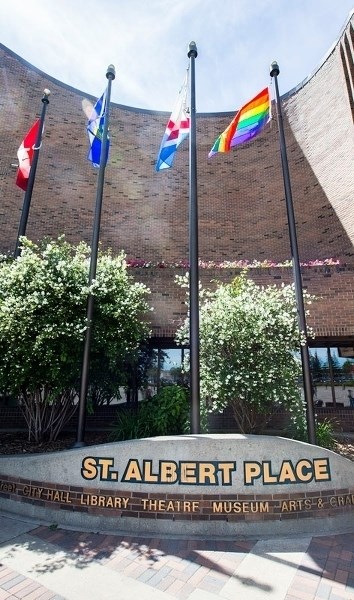We’re all complicit in last weekend’s mass shooting in Florida, says a local LGBTQ advocate, and it’s up to all of us to make sure it doesn’t happen again.
Members of the St. Albert lesbian, gay, bisexual, trans and queer community were stunned this week by news that a gunman had killed 49 and injured 53 at an LGBTQ nightclub in Orlando, Fla., on Sunday. The shooter, identified as American-born Omar Mateen, was later shot and killed by police.
Kristopher Wells, St. Albert resident and director of the University of Alberta’s Institute for Sexual Minority Studies and Services, says he heard about the shooting as he was getting ready for the 11th annual Pride Brunch in Edmonton. The news triggered a swirl of despair, disgust, anger, and mourning in him.
“Our community was attacked once again,” he said.
Mia Soetaert of the St. Albert Outloud group said she was quite scared when she heard of the attack.
“It’s one of those things we’re all thinking about,” she said about violence against LGBTQ persons.
“Our generation just needs to stand up and be proud and strong and hope it gets better.”
Former St. Albert teacher Jan Buterman said this shooting was shocking, but not unexpected given the treatment of trans people in the world.
“The kind of rhetoric that goes along with that is all full of hate and fear, and is cementing hate and fear in people.”
LGBTQ persons are the third most common target for hate crimes in Canada, Wells said, citing information from Statistics Canada. Those attacks also tend to be the most violent.
“There’s not one stab wound, there’s 40 stab wounds.”
Buterman, who is president of the Trans Equality Society of Alberta, said the shootings did not make him feel any less safe than he did before.
“As a trans person, we have targets painted on us every day,” he said, with about 146 trans persons murdered in North America in the last eight years alone.
Although Mateen claimed allegiance to the Islamic State militant group, U.S. officials say he was likely inspired by extremist information on the Internet and not directly linked to or directed by the group.
Islamic State has not specifically targeted the LGBTQ community, instead urging followers to attack and kill non-Muslims in general, said Kamran Bokhari, a fellow with The George Washington University Centre for Cyber and Homeland Security who has written extensively on Islam and terrorism. (The group has probably killed more Muslims than non-Muslims, he added.)
Like many religions, Islam does not condone homosexuality, but there’s a wide range of interpretations of it, ranging from acceptance to violent denunciation. Bokhari said.
“The extremist behaviour we saw in this guy two days ago didn’t come out of nowhere. It does emanate from a large pool of intolerance.”
Canadians need to encourage religious communities to debate LGBTQ issues to drain that pool to create a more tolerant society, he said.
This attack wasn’t about religion or Islam, but about someone who’s learned to hate, Wells said. Harmful rhetoric from leaders, ignoring LGBTQ issues in school and blocking students from forming gay-straight alliances all send the message that it’s okay to discriminate against LGBTQ people.
“Those are the messages that breed the climate that allow hate and violence to flourish,” he said.
“We’re all complicit in Orlando and what happened, because if we really believe hate is a learned value, then we really have to look deep inside ourselves and ask what are we teaching (people), particularly our young people, about the value of diversity and difference.”
Wells and Soetaert urged people to come out to the St. Albert Pride barbecue this Saturday in Lions Park to help build a more inclusive community.
“We can’t let hatred win,” Wells said.




